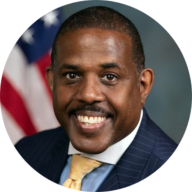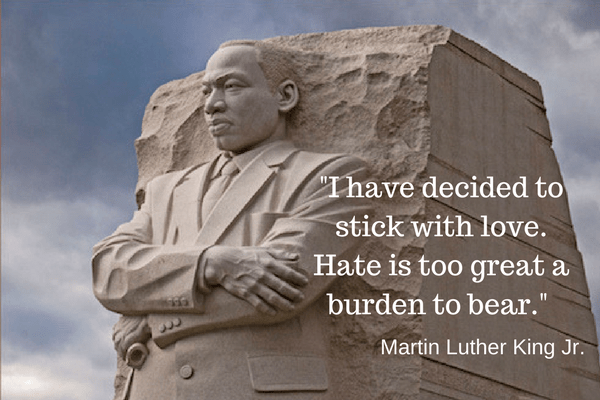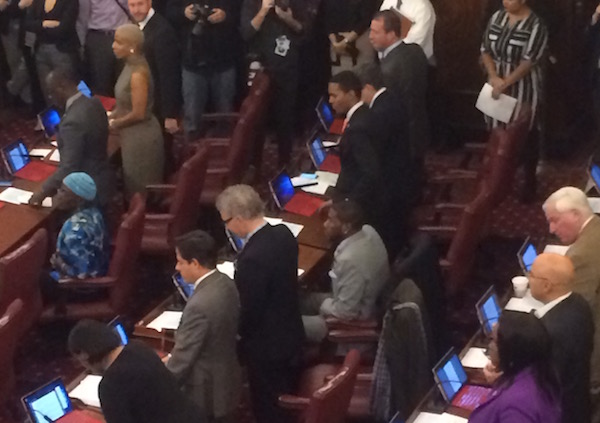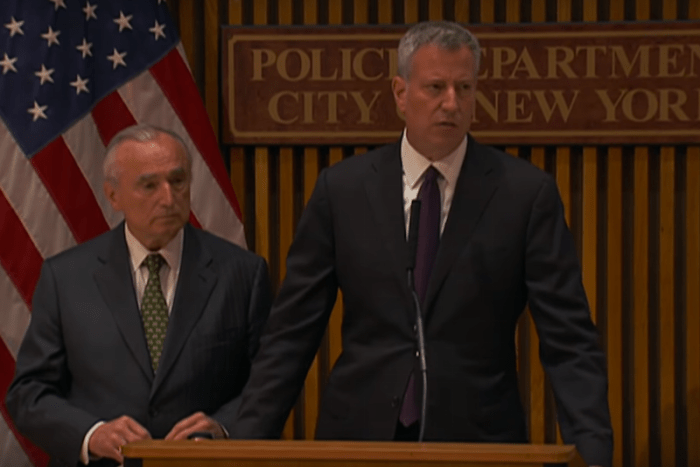
With the national debate about voter rights making daily headline news, I cannot help but take a more than casual moment in contemplating the life and legacy of Dr. Martin Luther King Jr. on his 91st birthday.
Now more than ever as we battle serious issues such as a global health pandemic, a crime epidemic, police brutality, the rollback of Civil Rights and voter rights legislation and high unemployment, it’s vital that we lean into Dr. King’s message of working together as he exhibited in his words and actions. Moreover, we must also embrace his heart’s message of hope.
For even as Dr. King stood on the steps of the Lincoln Memorial in Washington D.C. and challenged America to look into its soul, there were no indicators that America was going to change. During his lifetime, as he passionately recited his dream that one day “little black boys and black girls will be able to join hands with little white boys and white girls as sisters and brothers,” there was nothing in the America of his day to assure him that this day would come. In fact, to the architects of the Civil Rights Movement, “we shall overcome . . .” someday was real although there were no concrete signs that “someday” will come.
This is not a dilemma singular to Dr. King but rather a common experience for most freedom fighters. Like Dr. King, the freedoms for which many have fought were not realized in their lifetime but after their deaths. However, they moved from a deeper consciousness that can only be described as … hope.
It was the strength of this hope that carried Dr. King through his 13 years of activism and struggle for racial and social equality and economic empowerment. He lived, moved, and acted on the hope that “an oppressed people cannot remain oppressed forever.”
In much the same way, we who cherish his ideals are challenged to hold on to our hope. Though Dr. King was not privileged to live the dream, we acknowledge the gains that have been made through the Herculean efforts of the forbearers of the 60’s. We cannot take lightly the legal protection in the areas of public accommodations, housing, schools, and transportation systems.
Even so, we cannot turn a blind eye to the fact that in America we still have 37.2 million poor people, including 12.5 million children, even though our GDP is double digits higher than it was in 1968 when Dr. King launched the Poor People’s Campaign. Nor can we ignore the fact that the gap between the rich and the poor in the United States is at its highest ever recorded. Or that America has become the world’s leading jailer with a prison industrial complex housing 2.3 million people. Or that corporate greed and our government’s failed economic policies have all but bankrupt our country.
So, I urge you to let today be the day when we speak truth to power in our continued effort for self-determination. Now we must put this hope into action so that our children may live the unrealized dreams. However, this cannot be a passive hope. It’s not the hope where we sit around the fire and sing Bob Marley’s “One Love!” Nor is the hope where we continue to hold diversity conferences on Zoom. Or conversely, remain silent while more and more Republican states threaten voting rights by upholding the “big lie.”
Dr. King did not just provide us with a candle for our journey of hope, he provided us with a road map showing us the way to mend broken fences and move toward building this land rather than destroying it. We need to revive the moral fervor contained in his dream while rejecting the antiseptic version that is being perpetuated in the mainstream.
For we cannot trumpet Dr. King’s ideals of non-violence and reconciliation without acknowledging his prophetic anger. In fact, in his “I Have A Dream” speech, he mentioned “police brutality” on two separate and distinct occasions. On another occasion, he told his followers: “It is not enough for us to talk about love. There is another side called justice … Standing beside love is always justice. Not only are we using the tools of persuasion — we’ve got to use the tools of coercion.”
Today, I celebrate Dr. King by anchoring in the hope that “we will be able to hew out of the mountain of despair a stone of hope.” And as an elected official and the voice of those who need a voice, I am standing on hope. Now is the time to put meat on the bones of hope by providing our citizens with a living wage with benefits. This is my hope. And it is our hopes, not our hurts that will liberate us.
State Sen. Kevin Parker represents Brooklyn’s 21st Senate district encompassing the neighborhoods of Flatbush, East Flatbush, Flatlands, Midwood, Ditmas Park, Kensington, Windsor Terrace, and Park Slope.










